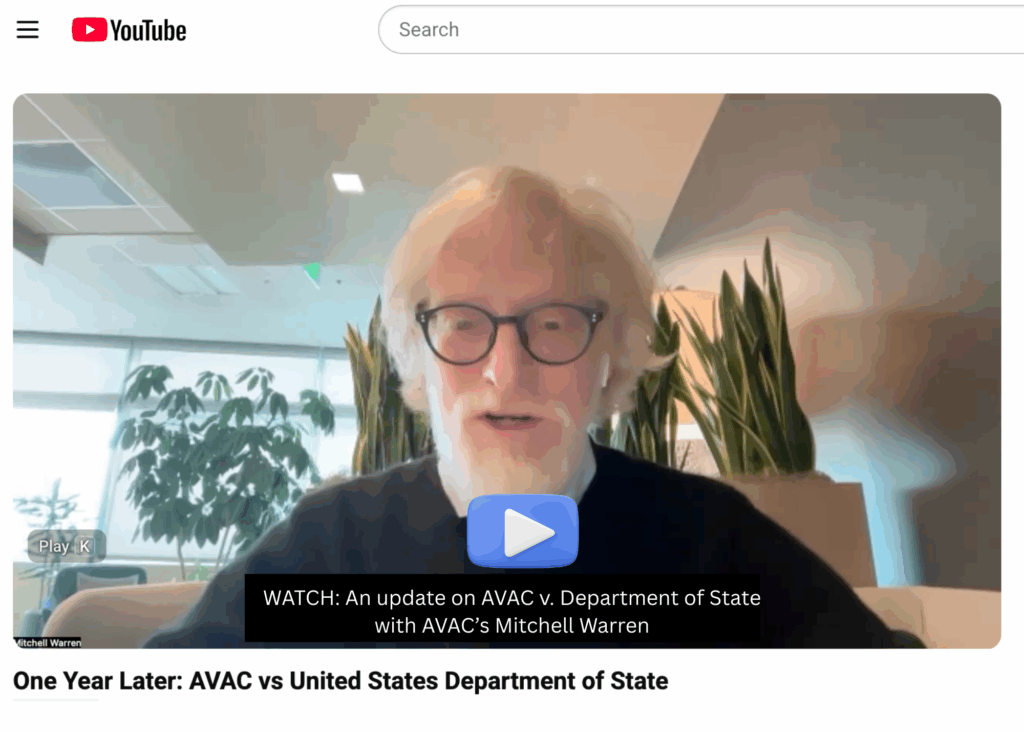Going to CROI? AVAC’s up-to-date infographics — on the research & development pipeline, prevention options, and the impact of US funding cuts — are available here for use in conference presentations. We constantly update these graphics, so check back for updates. The latest version of the deck will be available here.
AVAC Infographics for CROI 2026
AVAC Year in Review 2025
2025 underscored the vital role that AVAC plays in the global health ecosystem, and why our work and our partnerships have never been more essential.
This report highlights AVAC’s role as a trusted voice, a translator of science and catalyst for action and advocacy. It reflects an organization ready for the future: supporting African leadership, strengthening bridges from R&D to delivery and preparing for a new chapter as we move forward into our fourth decade as an organization. Read the PDF below or view as a webpage.
An Overview of Lenacapavir for PrEP Trials
EXPrESSIVE Phase III Program Countries of MK-8527
Seventeen countries are hosting sites for the Phase III efficacy trials of a monthly PrEP pill, MK-8527, being developed by Merck (also known as MSD outside of the US and Canada). Merck announced the launch of the Phase III trials at IAS 2025 in Kigali. MK-8527 was found to be safe and well-tolerated in Phase II clinical trials.
Lenacapavir Regulatory Approval
Regulatory approvals, pending decisions, and appeals as of February 2026. For product approvals, volumes, implementation, and price comparisons of long-acting PrEP, visit our dashboard on PrEPWatch.org.
Years Ahead in HIV Prevention Research: Time to Market
This timeline shows the potential time points when the next-generation of HIV prevention options might find their way into new programs.
HIV Vaccine Clinical Trials Pipeline
This graphic summarizes the state of HIV vaccine research, detailing the different immunological approaches in clinical trials, the specific candidates being studied, and the collaborative networks of funders and developers working toward an effective vaccine.
One year ago, we sued the US Government…
Today marks one year since AVAC and the Journalism Development Network worked with the Public Citizen Litigation Group to sue the US President, the State Department, the US Agency for International Development (USAID), and others, seeking emergency relief from a sweeping freeze on foreign assistance issued by the incoming administration that abruptly halted life-saving global health and development programs. A parallel case was brought by Global Health Council and partners and assigned to the same District Court judge, underscoring the broad concern across the global health community.
Twelve months later, these cases have come to symbolize a much larger question: whether the executive branch can override Congress’s constitutional authority over federal spending and dismantle decades of bipartisan foreign policy with the stroke of a pen, and whether the courts and Congress will fulfill their responsibilities to serve as checks on unbridled executive power.
The past year has laid bare the real-world consequences of unchecked executive action, threatening lives, destabilizing global partnerships, and undermining the United States’ credibility as a reliable partner.

An early ruling in AVAC’s case successfully unlocked nearly $2 billion in US government payments for work already completed, affirming that the executive branch cannot refuse to spend money appropriated by Congress. But over the course of 2025, appeals by the administration, ultimately backed by the US Supreme Court, ran down the clock on $4 billion in already-appropriated funds for the 2025 fiscal year, allowing them to expire.
While the Supreme Court’s ruling did not resolve the underlying constitutional questions, the decision was narrow and the Court left open the opportunity for further argument on the merit of the questions involved. In November 2025, a joint statement to the District Court requested to pause the cases, awaiting the outcome of other relevant court decisions.
The AVAC and GHC cases remain active, but lawsuits alone cannot restore what was lost—or undo the long-term harm caused by the sudden dismantling of global health systems.
The actions by this administration demand more than concern. This moment demands public accountability, sustained Congressional oversight, and durable legislative safeguards. Global health and equity require champions willing to fight for lives and livelihoods, and for what’s right. We cannot accept this as the new normal, and we must insist that Congressional authority, democratic governance, and the lives they protect still matter.
If you’d like to support AVAC in its continued work, please consider making a donation, https://donatenow.networkforgood.org/donate-avac.
Source of Lenacapavir for PrEP Supply to Early Adopter Countries
The Global Fund, with support from CIFF, and PEPFAR have jointly committed to reaching up to two million people with injectable lenacapavir for PrEP over three years. Supply of LEN began arriving in countries in late 2025 with service delivery planned to start in early 2026.
Speeding Up Access to PrEP
The timeline for hitting key milestones in product introduction is moving faster for injectable LEN than for any previous PrEP products, starting from the announcement of efficacy results in Phase III trials. LEN’s accelerated timeline compared to oral PrEP, DVR, and CAB reflects a field-wide effort to learn lessons from previous PrEP rollout and not repeat the mistakes of the past.